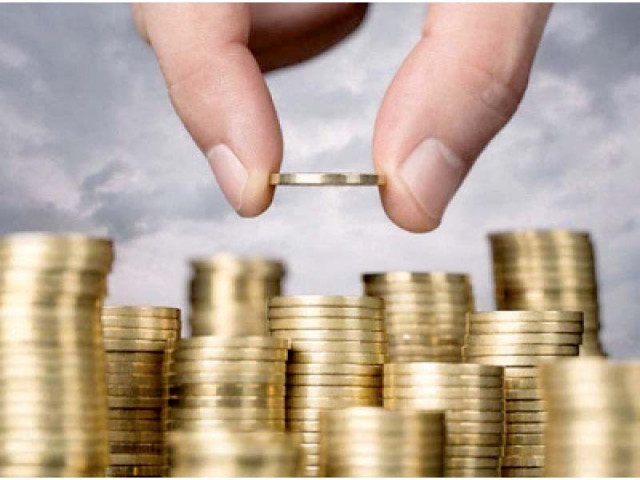Public debt surges to record Rs51tr
Currency free fall, high financing needs take debt to unprecedented highs

The federal government’s debt jumped to nearly Rs51 trillion by the end of November 2022, a surge of 22% in a year due to currency devaluation and high financing needs amid political point-scoring that contributed a maximum to the debt burden.
The increase in the federal government’s debt was Rs9.1 trillion in the past one year till November 2022 as the debt swelled to a record Rs50.9 trillion, the State Bank of Pakistan (SBP) reported on Thursday.
Figures have been released at a time when both the mainstream political parties, the Pakistan Muslim League-Nawaz (PML-N) and the Pakistan Tehreek-e-Insaf (PTI), are blaming each other for the mess creating by the soaring debt. It has created default risk and is diverting half of the budget to debt servicing.
Imran Khan used the debt issue as a tool to defame Pakistan, as he highlighted it everywhere he visited, but ended up his tenure by adding Rs19 trillion to the public debt, said Finance Minister Ishaq Dar on Wednesday.
He went on to say that the former prime minister had promised to bring down the gross public debt to Rs20 trillion at the end of his term.
In terms of the size of economy, Pakistan’s total debt and liabilities were equal to 76.4% in 2018 that jumped to 89.2% by June last year, despite the rebasing of economy.
But the finance minister is of the view that the Fiscal Responsibility and Debt Limitation Act, which binds the government to restrict the public debt below 60% of gross domestic product (GDP), is just a man-made law that can be amended.
No government has brought meaningful reforms to stop the accumulation of debt. Former PM Imran Khan had promised to curtail the debt burden, while blaming his predecessors for throwing the country under the debt pile.
But when he left office in April 2022, his government had added over Rs19 trillion to the total debt stock. During their previous five-year stints in power, the PML-N added around Rs10 trillion and the Pakistan Peoples Party (PPP) Rs8 trillion to the total debt.
Lower-than-targeted tax collection, steep currency devaluation, higher interest rates, high expenditures along with losses incurred by state-owned companies and debt mismanagement were the main reasons for the surge in public debt during the PTI’s tenure.
Average exchange rate on the last day of November 2021 was Rs176.14 that depreciated by 27% in just one year and closed at Rs224 to a dollar in November 2022, according to the central bank. It had a huge impact on the government’s external debt.
The external debt increased at an alarming pace of 27% and reached Rs18 trillion within one year. There was a net increase of Rs3.8 trillion, largely due to currency depreciation and building foreign currency reserves through borrowing. At the end of August 2018, the external debt had stood at Rs7.8 trillion.
The government’s domestic debt increased to Rs32.9 trillion, with an addition of Rs6.1 trillion, or 23%, in one year. Before Imran Khan took office in 2018, the domestic debt had stood at Rs16.4 trillion.
There was an increase of Rs5.4 trillion in long-term debt that jumped to Rs26 trillion at a time when interest rates were very high. Debt accumulation through long-term bonds rose to Rs22 trillion, with an increase of Rs5.6 trillion, or 34%.
However, the debt flow through savings schemes decreased by 14%, or Rs494 billion, to Rs3.1 trillion by the end of November.
A direct consequence of the mounting debt pile is a huge increase in the cost of debt servicing. Total debt servicing, which at the time of budget had been estimated at less than Rs4 trillion, is now being revised upwards to Rs4.8 trillion.
Finance Minister Ishaq Dar said on Wednesday that the debt servicing cost could be close to Rs5 trillion in the current fiscal year.
The government is facing the challenge of arranging $32 billion in foreign loans in the current fiscal year. In the first five months, the foreign loan disbursements amounted to $5 billion. After including Saudi Arabia’s deposit rollover, it will go up to $8 billion.
Published in The Express Tribune, January 6th, 2023.
Like Business on Facebook, follow @TribuneBiz on Twitter to stay informed and join in the conversation.


















COMMENTS
Comments are moderated and generally will be posted if they are on-topic and not abusive.
For more information, please see our Comments FAQ